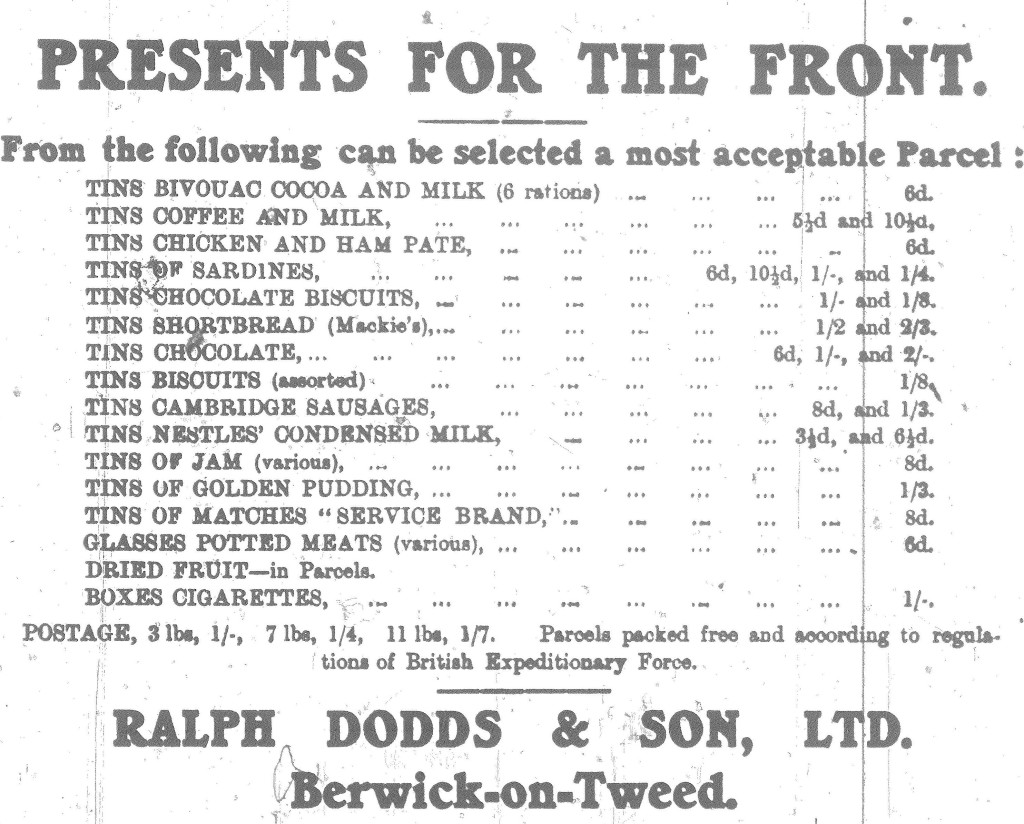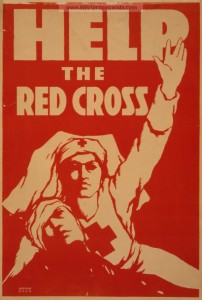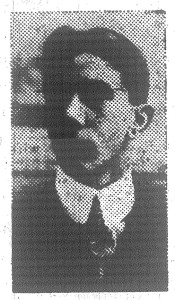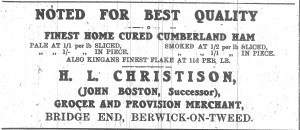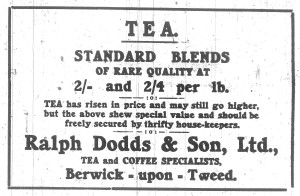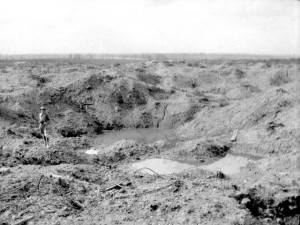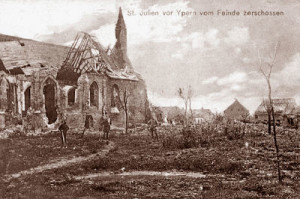BERWICK ADVERTISER, 28th MAY 1915
BERWICK’S EIGHTEEN HOLE GOLF
COURSE OPENED
Formal Handing Over of the New Nine Holes to Directors.
A large company of lady and gentlemen members with their friends assembled at the Golf House in the Magdalene Fields, Berwick, on Thursday afternoon to witness the opening of the new eighteen-hole golf course, and the handing over to the Directors of the Magdalene Fields Golf Company of the new nine holes. The Mayor and Mayoress (Mr and Mrs Thomas Wilson) were present, along with the Sheriff (Mr E. W. Stiles), the Chairman of the Magdalene Fields Company (Mr A. J. Dodds), and the Captain of the Club (Mr John Brough).
“For The Town’s Good.”
Mr Dodds, in accepting the new nine holes on behalf of the Company said :- On behalf of the Magdalene Fields Company I desire to take over this extended course which Mr Brough has
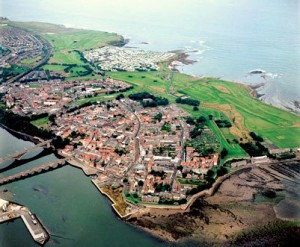
described to us, and in doing so I feel I must be getting a very venerable old man. (Laughter). The Club is the offspring of the Company, and the new eighteen hole course is the offspring of the Club, and we, as Directors stand in the position of being grandparents to the new nine holes (laughter).
The fields were originally taken over from the Duke of Northumberland with special instructions that they were for the good of the town. The 18 holes have been carried out exactly in the same spirit and they are taken over in the spirit- for the good of the town. It is only for the members then to make it a huge success. Mr Brough has referred to to the question of the terrible war and perhaps we have some justification for holding this function this afternoon. We have 20 members actively serving in His Majesty’s Forces, and one has laid down his life. The course was laid for the good of the town and so our gathering today is of a public more than of a private nature and this is proved by the fact that it is patronised by the Mayor and Mayoress and our energetic Sheriff. I am glad to see with us an old member, and one who has taken a great interest in the extended course- I refer to Mr Thomas Carter, junior. (Applause) I have pleasure in declaring the course open. (Applause).
The captain said as a memento of the occasion he had pleasure in presenting to the Club a framed plan of the new course which had been excellently drawn up by Mr Carfrae of the Borough Surveyor’s office. (Applause.)
The company then adjourned to the first tee when Mr Dodds drove off the first ball, thereby beginning a mixed foursome competition (handicap stroke).
NORHAM DOCTOR FOR THE NAVY
We learn that Doctor John Paxton, Norham, has received an appointment as surgeon in the Royal Navy. Dr. Paxton left to take up his duties at Portsmouth on Wednesday. Dr. Paxton is the only son of Mrs Paxton, and the late Dr. John Paxton of Norham-on-Tweed. Dr. Paxton succeeded his father in practice at Norham, and he is also Medical Officer to the Rural District Council of Norham and Islandshires.
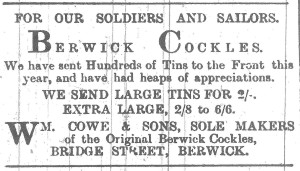
BELFORD
Promotion of a Local Soldier- The many friends of Col. Sergt. Sleath, civilian as well as military, will be pleased to hear of his promotion to the important rank of Staff Sergt. Major. he has just left for
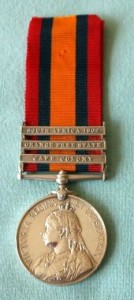
France to take up his duties on the Staff of the General officer in command of the Northern Territorial Division Base. A keen soldier, he has twice been granted an extension having now served 25 years in the Army, 12 years as Col. Sergeant. he came to Belford seven years ago, as Instructor to “C” Company, 7th N.F., and during his term of years this Company has always held place as one of the most proficient of the Battalion, both in discipline and on parade. this alone shows his worth as an Instructor, especially considering the fact that this Company is recruited from a wide district, there being 30 outlying sections something like 10 or 12 miles from headquarters. On mobilisations he went with his Company to Tynemouth, and thence to Gosforth Park, where, chiefly through his influence, a large percentage of his company volunteered for foreign service. Shortly after this he was transferred to the Notts and Derby Regiment at Chelmsford. Great disappointment was felt by the men of “C” Company when they learnt that he was not able to accompany them to the front. However, they may happen to stumble across him now, since he has gone out to the base. Needless to say they will all wish him luck on his well-deserved promotion. Staff Sergt. Major Sleath holds the South African Medal with three bars, as well as the Good Conduct Medal.


